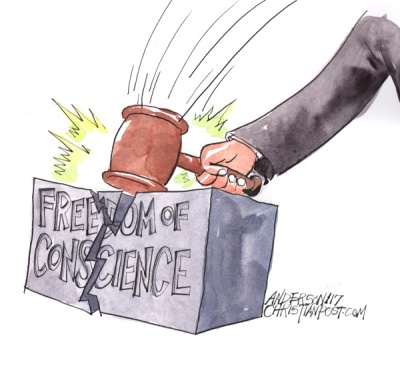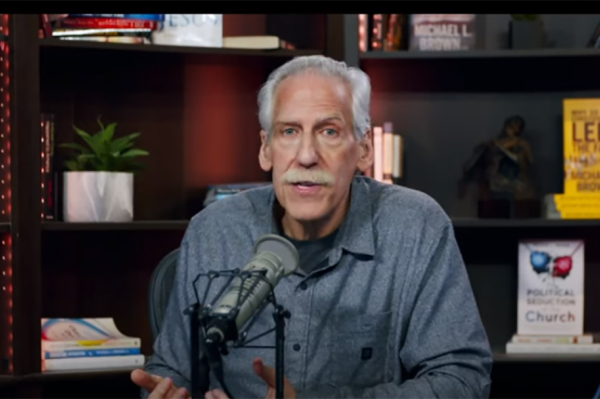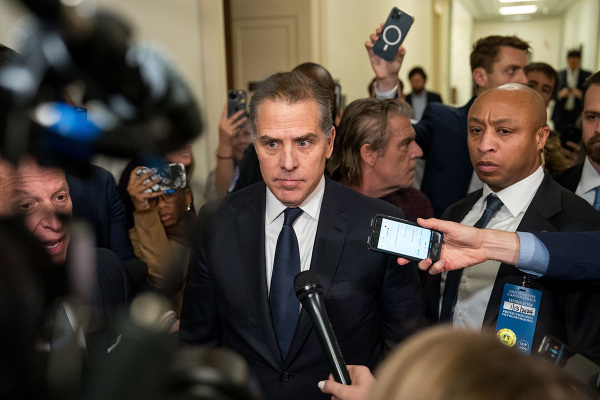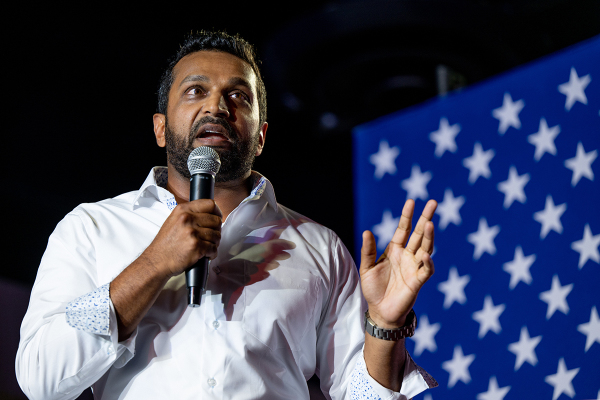Gov't can't force artists to violate their beliefs

Can the government force artists to convey messages that violate their beliefs?
That’s the question at the center of an important U.S. Supreme Court case, 303 Creative v. Elenis. It involves Lorie Smith, a Christian web designer from the Denver area who declines to create wedding websites for same-sex couples because of her religious beliefs. It’s a free speech case with big implications for religious freedom.
Our friends at Alliance Defending Freedom are representing the web designer. The Court is expected to hear the case during its next term, which begins in October.
First Liberty recently filed a friend-of-the-court brief supporting the web designer. We filed it on behalf of our clients, Aaron and Melissa Klein, two Christian bakers who declined to create a custom cake for a same-sex wedding. An Oregon state agency ruled that the Kleins violated the state’s public accommodations law and imposed a financially devastating penalty of $135,000 against them. That punishment forced them to shut down their family bakery, Sweet Cakes by Melissa.
Our brief asks the nation’s highest court to reverse a ruling from the Tenth Circuit Court of Appeals. That court ruled that under the Colorado’s anti-discrimination laws government has license to force artists to create art that violates their deepest convictions. Our attorneys explain that this is unconstitutional.
Far from benefiting our country, more harm is done when creative professionals and artists are forced to speak messages that violate their beliefs. As we note in the brief:
“A world where the state can require artists, entertainers, writers, and producers to use their expressive gifts to communicate messages that violate their convictions is a world where the First Amendment has been rendered meaningless … If a state truly wants to ensure access to robust markets, the last thing it should do is compel or silence speech from artistic business owners. Such coercion will not increase access to goods and services but will instead devastate the commercial marketplace, driving small, family-run art shops out of business and leading to inferior markets for all.”
A favorable decision for the Colorado web designer could be positive for Aaron and Melissa, who have been searching for sweet justice and fighting in court for nearly 10 years. The outcome could also have a widespread impact on religious Americans who are being forced to choose between violating their beliefs or losing their business.
In recent years, we’ve witnessed an alarming rise in attacks against religious people in the marketplace. From cake artists and florists to photographers and designers, countless business owners are facing the threat of closure for operating in accordance with their religious beliefs. It’s almost impossible to ignore that is indeed one of the most pressing issues, affecting millions of Americans.
If 303 Creative LLC sounds familiar, it’s because it resembles another Supreme Court case in recent years: Masterpiece Cakeshop v. Colorado (2018).
In that case, the Court ruled that state officials had been openly hostile to Christian baker Jack Phillips, who also declined to create custom cakes for same-sex weddings. Both Phillips and Smith were subject to the same coercive, “anti-discrimination” law in Colorado that effectively silences people of faith and forces them to conform to the cultural orthodoxy.
Masterpiece Cakeshop was a step in the right direction and handed a win to Jack Phillips. The Court reaffirmed that the state cannot discriminate against Americans because of their religious beliefs.
But the ruling was narrow. The Court punted the main free speech and religious liberty questions, namely, whether a baker (and similar creative professionals or artists) had a First Amendment right to decline engaging in expression that offended his or her beliefs.
Justice Anthony Kennedy, writing for the majority, concluded in Masterpiece: “The outcome in cases like this in other circumstances must await further elaboration in the courts.”
With 303 Creative LLC, it does appear the Supreme Court wants to “further elaborate” on these constitutional issues. We must remember: the nation’s highest court only agrees to hear a select number of cases each year. It will only hear about 65 to 85 cases in a single term — about 1 to 2% of all the cases appealed to it. In other words, when the Court agrees to hear a case, it’s doing so for a reason.
This could mean — though it’s not guaranteed — the Court is reviewing 303 Creative LLC to fill in the missing pieces from the Masterpiece ruling. If we opt for an optimistic outlook, we’re hopeful the Supreme Court will treat this case as an opportunity to issue a broader, more expansive decision protecting free speech and religious freedom.
Originally published at First Liberty.
Jorge Gomez is the Content Strategist and Senior Writer for First Liberty Institute. He has previously worked as a communications and messaging strategist for faith-based nonprofits and conservative policy organizations. He holds a degree in political science from the University of Central Florida and a master’s degree in public policy from Liberty University.





















